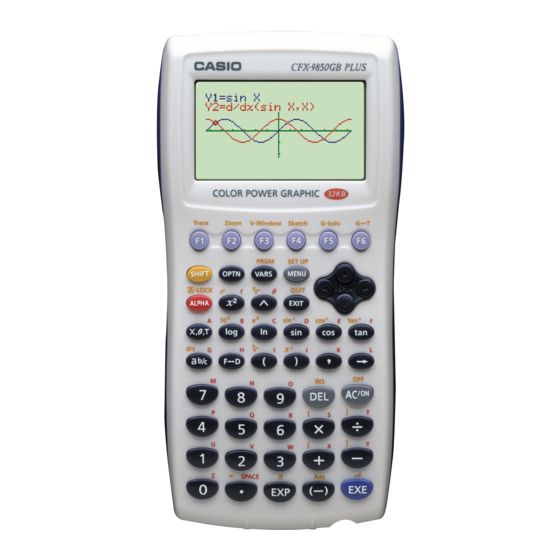Casio CFX-9950GB PLUS Посібник з графіки - Сторінка 4
Переглянути онлайн або завантажити pdf Посібник з графіки для Калькулятор Casio CFX-9950GB PLUS. Casio CFX-9950GB PLUS 12 сторінок. 6. matrix calculations
Також для Casio CFX-9950GB PLUS: Посібник з програмного забезпечення (20 сторінок), Посібник користувача (18 сторінок), Посібник з комунікацій (13 сторінок), Посібник користувача програми (18 сторінок), Прочитайте цей перший посібник (13 сторінок), Посібник з експлуатації (14 сторінок), Посібник з графіки (8 сторінок), Посібник з графіки (6 сторінок), Посібник з графіки (12 сторінок), Посібник з графіки (12 сторінок), Посібник з графіки (12 сторінок), Посібник з графіки (10 сторінок), Посібник з розрахунків (13 сторінок), Посібник з розрахунків (18 сторінок), Посібник з розрахунків (15 сторінок), Посібник з комплексних чисел (6 сторінок), Посібник з розрахунків (6 сторінок), Посібник з розрахунків (20 сторінок)

